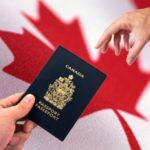Expanding your business across borders is exciting — and complicated. A business visa is one of the clearest tools that helps entrepreneurs, executives, and teams move quickly, legally, and strategically.
In this post I’ll explain, in plain language, how a business visa can accelerate growth, reduce risk, and open doors you didn’t know existed. I’ll also include practical steps you can act on today.
What a business visa actually gives you
A business visa is more than just permission to enter a country. It often grants you the ability to:
- Attend meetings, negotiate deals, and sign contracts in person.
- Meet partners, investors, and local suppliers face-to-face.
- Conduct market research on the ground.
- Take part in trade shows, conferences, and networking events.
- Establish short-term presence for pilots, training, and setup tasks.
These activities may look small, but they matter. In-person relationships still close deals faster than email threads. That first handshake builds trust and speeds decisions.
Why in-person presence matters for expansion
Remote work is powerful, but markets are local. Here’s why being physically present helps:
- Faster relationship-building. Local partners often prefer face-to-face interaction. A business visa lets you meet them in a way that builds credibility.
- Better market sensing. You absorb context — customer behavior, store layouts, competitor presence — that no report can replicate.
- Operational problem-solving. When opening an office or pilot operation, onsite presence lets you fix problems immediately.
- Regulatory navigation. You can meet regulators, lawyers, and consultants face-to-face — speeding approvals and avoiding misunderstandings.
Strategic advantages of the right visa
Not all business visas are equal. The right one gives strategic advantages:
- Flexible entry windows. Multi-entry visas allow repeated visits over months or years — ideal for phased launches.
- Family or dependent provisions. Some visas allow families to join, which helps executives relocating longer-term.
- Pathway to longer stays. In some countries, repeated business visits can lead to investor or work visas later.
- Ease of travel across regions. A visa that’s valid for multiple countries or regions reduces friction for regional managers.
Choosing the correct visa type is a lever: the stronger and more flexible the visa, the smoother your expansion.
Risk reduction and legal compliance
Operating abroad without proper permission is risky. A business visa lowers that risk in three ways:
- Legal protection. It shows you’re compliant, reducing fines and enforcement actions.
- Reputation. Regulators, banks, and partners treat compliant companies more seriously.
- Predictability. With legal status you can plan timelines and budgets more confidently.
The bottom line: a visa is an inexpensive insurance policy against legal headaches that can derail a launch.
Original, practical insights you can use now
I’ve worked with businesses that treated visas as an afterthought — and paid for it. Here are a few pragmatic lessons I recommend:
- Map visa needs to milestones. Create a simple table: milestone (market visit, supplier onboarding, pilot), required visa type, timing. This prevents last-minute delays.
- Start early for multi-stage launches. Many visas take weeks; investor or residency routes can take months. Build visa timelines into your project plan.
- Blend visa types. A combination of business visit visas and local contractor arrangements often covers initial needs without overcommitting.
- Use visits to de-risk. Treat your first 1–2 visits as “listening trips” — validate customer needs before heavy spending.
- Document everything. Keep meeting minutes, signed MOUs, and photos from visits. These often support future visa or immigration applications.
- Leverage local incubators and chambers. They can sometimes sponsor or facilitate entry and accelerate introductions.
Tactical checklist for teams planning expansion
- Decide who needs to travel and why. (Sales? Ops? Legal?)
- Choose the correct visa category for each purpose.
- Prepare invitation letters, company registration docs, and financial proofs.
- Apply early — and plan for contingency.
- Schedule market visits around key events (trade shows, festivals).
- Capture evidence of on-ground activity to support next visa steps.
Common mistakes to avoid
- Applying for the wrong visa because it seemed “easier.”
- Assuming remote interactions are enough for critical negotiations.
- Waiting until after contracts are signed to arrange travel.
- Not capturing proof of activity during visits.
Avoiding these mistakes saves time and money.
When a business visa leads to deeper ties
A business visa often starts short-term activity and evolves into deeper engagement. Examples include:
- A pilot sale turning into a regional partnership.
- Repeated visits leading to the establishment of a local subsidiary.
- Investor introductions during a trip that end up funding a local office.
Think of the business visa as the spark. The follow-up — relationships, pilots, and local hires — is the fuel.
Final thoughts: make the visa part of your strategy, not an afterthought
If you’re serious about global expansion, integrate visas into your core plan. Treat them like project milestones, not bureaucracy. With the right approach, visas don’t slow you — they accelerate and protect you.
Ready to take your business global?
Get expert guidance on the right business visa for your expansion plans.
📧 Email us: info@immigrationxperts.com
📞 Call us: +91-9999467686, +91-8447-696555
Frequently Asked Questions
What is a business visa and how does it help companies expand internationally?
A business visa is a short-term permit for commercial activities like meetings, trade shows, and market research. It allows founders and teams to build relationships, validate market fit on the ground, and close deals faster — accelerating market entry without immediate local employment.
Which business visa type is best for market-entry visits?
For repeated short visits, choose a multi-entry short-stay business visa. It’s ideal for pilots, supplier setup, and investor meetings. If you plan to establish a local entity later, consider investor/business routes that can lead to longer-term residency.
How long does a business visa take to process?
Processing varies by country and visa type: short-stay business visas often take 1–8 weeks; investor or residency pathways can take several months. Always check the destination’s official site and apply early to avoid launch delays.
Can I sign contracts or open bank accounts on a business visa?
Yes — you can usually negotiate and sign contracts while on a business visa. Opening corporate bank accounts or completing formal company registration may require additional local documents or a resident representative, so confirm bank and registry rules in advance.
What documents are typically required for a business visa?
Common requirements: valid passport, host invitation or cover letter, proof of company registration/employment, recent bank statements, and travel itinerary. Some countries also ask for insurance, tax records, or meeting agendas — check the specific country checklist before applying.






